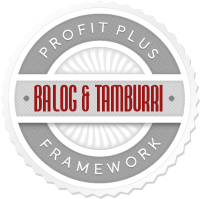By Richard T. Balog, CPA\CFF, CIA, CGFM, DACFE, and Rob Tamburri, CPA\PFS
April 22, 2017
The CFO is the financial “partner in strategy,” along with the CEO, COO, CIO and other Senior Managers. Today’s CFO needs the ability to not only manage the financial accounting and reporting aspects of the organization, but to also focus on the multiple and often conflicting roles. Today’s CFO needs skills far different from those of a typical CPA or Corporate Controller. Today’s CFO needs to be both a strategic and tactical thinker. Their basic communication skills need to be far beyond the financial aspects of the company. Today’s CFOs have the responsibility of sharpening and further-developing their “people skills” as well as their management skills to effectively work with your CEO, line executives, shareholders, Boards of Directors, regulatory agencies, employees and the financial community; what some folks define as their “Emotional Intelligence (EI).
Emotional intelligence (EI) refers to the ability to perceive, control, and evaluate emotions. Some psychologists suggest that emotional intelligence can be learned and strengthened, while others claim it is an inborn characteristic. Peter Salovey is the 23rd president of Yale University, and the Chris Argyris Professor of Psychology. John D. Mayer is a psychologist at the University of New Hampshire. These gentlemen coined the term ‘Emotional Intelligence’ in 1990 describing it as “a form of social intelligence that involves the ability to monitor one’s own and others’ feelings and emotions, to discriminate among them, and to use this information to guide one’s thinking and action“.
Salovey and Mayer also initiated a research program intended to develop valid measures of emotional intelligence and to explore its significance. There is little doubt that our emotions have a direct impact on our behaviors. As such our emptions can influence people positively and negatively. The ability to manage our emotions and the emptions of others especially has become a key attribute of today’s CFO. This is especially true in times of high workplace pressure, like year-end close!
For some people, the ability to manage emotions may come naturally, but for others, not so much. However, since the CFO needs to effect change through others, it has become a critical skill set in today’s “politically correct” culture. It is something of which every CFO needs to be aware and develop.
Many “Big Box” seminar companies offer programs that promise to teach you how to “manage your emotion in the workplace”, but as the old adage goes, you can lead a horse to water….The Virtual CFO Practice at Balog + Tamburri is built on our professionals’ ability to separate their emotions from the client’s own situation. The following are some of the key attribute to our successful approach:
- Understand the Business: The effective CFO understands that the company does not revolve around finance! The key to any effective business is the proper combination of optimum use of corporate resources allocation and competing resources. CFOs need to fully understand the business in order to properly allocate corporate resources to effectively manage the competing demand for those finite resources. While the CFO typically moves through the “numbers side” of the business, to be effective the CFO needs to “think outside of the box”; the traditional comfort zone of financials; and actually TALK to people! They need to see the company from the eyes of Marketing, HR, IT Production and other disciplines that “don’t speak debit!” They need to actually talk with their peer group, face to face, and learn how others see the “optimum use of resources.” They need to realize that not everyone manages in terms of financial results. Plant managers don’t speak “debit,” they speak pounds, and gallons. They need to realize that Variance Reports don’t have to be in dollars and cents.
- Think Like a Salesman: This may sound like blasphemy, but it is critical! Today’s effective CFOs must be strong and effective verbal and written communicators. They must be able to give a plant tour as effectively as the Plant Manager. Internal reports need to be understandable by everyone! Be honest and accurate with the facts but also provide insight into the numbers that you have learned to make them understandable. Know the company’s marketing pitch. Be able to talk to customers as well as the external auditors. Be a true leader.
- Understand what drives the business: Businesses do not live in a vacuum. Talk to folks to understand the activities and events that cause the numbers to change. During a recent profitability enhancement engagement, a line factory worker asked if someone “could lose their job as a result of the changes?” when I responded “It could happen,” the worker responded by saying “Oh yea?? Well Joe smoked dope on th roof during second shift; and Paula…” He went on to identify some twenty key issues no one knew about because nobody bothered to ask him. . Today’s effective CFO knows every aspect of the business and what drives each. Look at outside drivers as well. What is happening in the world, local events and the such all impact the business. When was the last time your accountant’s asked a line manager what information he or she needed to get their bonus? It is the non-finance questions that are not being asked: Not “What are we going to spend?” but ask “Why are we going to spend it?” “How will the investment make us more competitive?” When CFOs interact company-wide at a strategic level, they will be able to provide the necessary information that actually adds recurring value, and strengthens the relationship between the company and its decision-makers.
- Change the language of your internal reporting: As stated previously, not everyone speaks debit. Get over yourself. You may be comfortable with debits, most others are not. Ask your users what are the decisions they have to make that are difficult or scary. Typically the root cause of poor decision-making is the absence of competent information. Allow the users to develop the internal reporting format and language. Get the right input and the output will be truly value-added.
- Listen to others: The secret to any successful leader is the strength of the team of key advisers, and the leader’s willingness to LISTEN to them. Get input from non-financial professionals. Use the diversity of other perspectives to the company’s benefit. Maximize the mutual benefit of the CFO Advisory Team. Don’t just talk numbers. Capitalize on each other’s knowledge, experience and expertise. A good tem has worker bees as well as key executives. Each has a very unique perspective. And above all, get over yourself. I refer to myself as a “lowly CPA.” Every effective business is a result of a great team that successfully completed a very complex jigsaw puzzle. No effective CFO ever solved the puzzle alone.
We have been very successful in effecting meaningful change in our clients’ profitability through the use of these skills. Our robust practice has grown and our clients are able to spend more time enjoying the fruits of their business. We believe that our approach to service as our clients’ Virtual CFO has made the difference in their businesses success. Our Firm offers a to-day program entitled The CFO Workshop: Vision, Skills and Focus for the New CFO, that provides training for today’s newly appointed CFO or those veterans who would like to see their role in a new and different light.
For more information contact Rick Balog, Managing Partner, at rick@flgacp.com, or call me directly at 904-945-1220.









